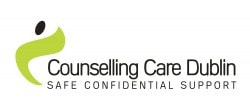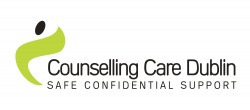The Eating Freely Program for Emotional Eating, Binge Eating & Bulimia
- Tired of saying “I’ll start again on Monday”, but never getting past Wednesday;
- Desperately trying to stop emotional eating or binge eating when all they really want to do is eat well and feel healthy - and cannot understand the disconnect between what they consciously WANT, and what they unconsciously DO;
- Have tried all the diet programs out there with no long-term weight loss success - believing if they can just find the 'right' diet it will be the magic bullet to solve all their issues;
- Are fed up of feeling bad about themselves - the underlying energy for many clients is 'I don't deserve to be happy/healthy', and so they are punishing themselves with food.
- But most importantly, although our clients know they eat for emotional reasons, they very often do NOT know that what they are struggling with is Binge Eating Disorder - an official Eating Disorder category listed in the DSM V since 2013.
The truth is that Binge Eating Disorder is not a food or weight issue at all, it is an emotional and mental health issue. So by seeking the solution in the diet/weight loss world, you have been starting from the wrong place. Your thinking is "WHEN I lose 'the weight' THEN I will be nicer to myself/able to meet someone/get a promotion/move job" etc.
Actually, it is the other way around, and this is what we work on with clients. WHEN you learn to love yourself, respect leave your past behind, let go of shame and guilt and move fully into being present in your life today - THEN you will find the way to permanent, successful weight management and weight loss - if there is weight to lose.
When you learn how to first Treat Yourself Better, then you can Eat Yourself Better.
Clients who have struggled for years with emotional and binge eating need expert support to first disentangle their food from their feelings, and then work on BOTH, separately and with specialist support, tools, resources and guidance. The Eating Freely Program comprehensively provides all of that specialist support.
Eating Freely is a one to one program combining CBT, Nutritional Rehabilitation, Neuroscience and Mindfulness support from our experienced practitioners, that focuses on changing how, and why you eat. You will work with both an Eating Freely Counsellor and Eating Freely Nutritional Therapist so you get the exact, personalised support you need around both your food/eating AND your triggers for emotional and binge eating.
To book a no-obligation, free 30 minute online consultation, and see if this program is the right option for you, click here: Eating Freely Consultationeatingfreelyonlineconsult.as.me/OnlineConsult
To learn more about the Eating Freely Program, visit our dedicated website: www.eatingfreely.com .
EATING DISORDERS - Anorexia, Bulimia, Binge-Eating Disorder.

Myths Vs Reality of Eating Disorders
One of the most common myths about eating disorders is that they are about food, or weight. This is not the case. Eating disorders are a way of coping with difficult feelings and emotions. A person engaging in abnormal behaviour around food or weight, is doing so because they are trying to avoid dealing with something else.
It is usually very difficult for someone with an eating disorder to talk about their problems with others. The first problem is not being able to talk about their feelings or emotions when something upsetting or difficult happens. When the eating disordered behaviour gets out of control, it's hard to talk about that. Sufferers feel ashamed and guilty. A common personality trait that is associated with eating disorders is being a 'perfectionist' or high achieving. Clients often talk about being the one that others turn to for help and advice, being seen as strong and able to cope. This makes it even harder to reach out to friends and family for help and support.
Symptoms of eating disorders include:
Skipping meals, eating substantially less than usual, vomiting or taking laxatives after eating to “purge” the food from the body;
Compulsive overeating being unable to stop eating, hiding food or eating in secret when nobody else is around;
Bingeing on food, this is planning and arranging to spend time alone and eating abnormally large quantities of food in a short period of time;
This may or may not be followed by vomiting - “purging”, or over-use of laxatives or diet pills;
Engaging in over-exercising, e.g. exercising for long periods every single day or exercising several times each day, planning schedules around exercising, getting stressed or anxious when planned exercise sessions are missed;
Lying to friends and family about eating and/or exercising;
Obsessively measuring or weighing the body, constantly making unfavourable comparisons with other people about size;
feeling ugly and worthless because of weight or appearance, or having a distorted view of the body, i.e. imagining the body is larger than it actually is.
Psychological signs are:
Withdrawal from friends and family;
Feelings of depression;
Feeling worthless, or useless;
Feelings of anxiety;
Mood swings;
Lack of control or feeling out of control;
Difficulty expressing emotions or needs to others;
Low self esteem;
Feeling disconnected from self and others.
Eating disorders are complicated and are made more so because they can be kept secret for a long time. The longer it goes on, the harder it is to change. Eating disorders are also very dangerous and they are life-threatening in the longer term. Our bodies are very adaptable, and they will do everything they can to keep working, but continued abuse over a long period will slowly break down your body, causing severe damage to your organs and bodily functions. Treatment of an eating disorder should therefore be a combination of psychological and emotional help, and help with the physical problems that have occurred as a result of the disorder.Anyone suffering from an eating disorder will have a significant impact on their family and friends, whether or not it is acknowledged or recognised.
DESCRIPTIONS OF THE MOST COMMON EATING DISORDERS
Anorexia Nervosa
A person struggling with anorexia will be obsessed with attaining and maintaining a body weight that is lower than normal for their weight and height. Much of their time is spent thinking about food and the need to lose weight. They may exercise obsessively and may also purge after any eating. Anorexia is a severe and serious disorder that will have a very negative effect on the physical body and long term damage can include pernament infertility, incontinence, liver or kidney failure, blindness and significant risk of heart attack.
Anorexia Athletica is a combination of food restriction and excessive, compulsive exercising.
Bulimia Nervosa
A person struggling with Bulimia will have regular binges with food, followed by fasting, excessive exercise, vomiting, laxative use, diuretic use or other medication aimed and clearing the food from the body quickly. Bulimic behaviour does not normally result in a significant loss or gain in weight and therefore is harder for other people to recognise. However bulimia is again a dangerous disorder and very harmful to physical health, putting pressure on the heart and digestive system and also results in excessive damage to teeth when regular vomiting is involved, or significant damage to the bowel, kidney and liver when medications are abused for purging.
Binge Eating Disorder
Sometimes referred to as Compulsive Overeating, a person struggling with binge eating will binge regularly without purging. Over time, the person will usually gain a significant amount of weight. Binge eating is the one eating disorder that is believed to be as common with men as with women. There is a more significant psychological effect of binge eating disorder where the behaviour itself results in the person feeling disgusted with themselves. Binge eating disorder is also the least likely eating disorder to be reported, or even recognised as an eating disorder.
Emotional Eating and Yo-Yo Dieting
In more recent times, the relentless pushing of mis-information on food, diets, health and wellbeing has resulted in many women and men developing an incredibly unhealthy relationship with food and their body. A pattern or cycle of dieting/restricting, followed by 'falling off the wagon' and bingeing/emotional eating, followed by disgust, shame and guilt, has left many adults feeling very unsure about themselves, beating themselves up for having 'no willpower', and generally feeling crap about themselves as a person.
If you suspect you are experiencing any of these issues, please do not hesitate to contact us, by phone or by email, in complete confidence and with no obligation. You may be more comfortable sending an email at first, just to begin to talk about how you are feeling. We can move towards structured support at your pace.
Why or How Does Someone Get an Eating Disorder?
Eating disordered behaviour often starts as a result of an upsetting or difficult experience, that the person finds hard to cope with. Common triggering events are bullying, a death in the family, stress and pressure due to exams, criticism about weight or appearance, a separation or any other significant event that affects someone emotionally and is hard to deal with. The person may not ever have been good at expressing their emotions or admitting to other people that they are struggling with something. People who worry about what other think of them instead of being able to stand up for themselves may be more likely to experience an eating disorder. Teenagers are particularly vulnerable, because of the pressure at this time in life to conform, to be the same, to look like everyone else. Added to this is the pressure on teenagers from parents to succeed, to do well in exams, to manage their behaviour and conform to parent’s beliefs and expectations. Eating disorders do not start out as a conscious choice and are not a willful form of 'attention seeking'. Rather, they come about slowly as a coping mechanism the person uses to help them feel more in control, or as a way of avoiding dealing with other, more difficult issues.
Eating disorders help sufferers feel “safe”. The structure and set of behaviours involved give a sense of control and purpose, and a sense of achievement when they succeed in ‘not eating’, or losing another pound in weight, or vomit up every meal they’ve eaten in a day. The behaviours serve an important purpose for the person, so it is understandable that they do not let go of them easily or without a fight.
Eating Disorder Recovery, can it be Overcome?
The longer an eating disorder goes on, the harder it is to recover, because it becomes a very important safety net in the person’s life. Although the actual behaviour helps them feel better, the feelings about themselves can be very negative – helplessness, guilt and shame are all common. Overcoming an eating disorder requires taking responsibility, deciding that change has to happen and being committed to working through the difficult process of letting go of the eating disorder and learning new, healthier ways of coping with emotions. Family and friends are very important during this time.
Being able to ask for support, tell people how you feel, and admit that you are struggling sometimes, are new and difficult behaviours, but they are part of the journey towards a life free from eating disorder. Counselling can help in overcoming an eating disorder. Having an independent, objective person to guide and support you through the process of recognising why the eating disorder came about and working on changing how you deal with emotional events, can be very beneficial. If you are struggling with an eating disorder or know someone who is, perhaps as a first step you might like to visit the website of Bodywhys, the national eating disorders association, for more information and confidential and anonymous support. See www.bodywhys.ie for more info.
To make an appointment with a Counsellor specialising in Eating Disorders, please use our Contact Form.


